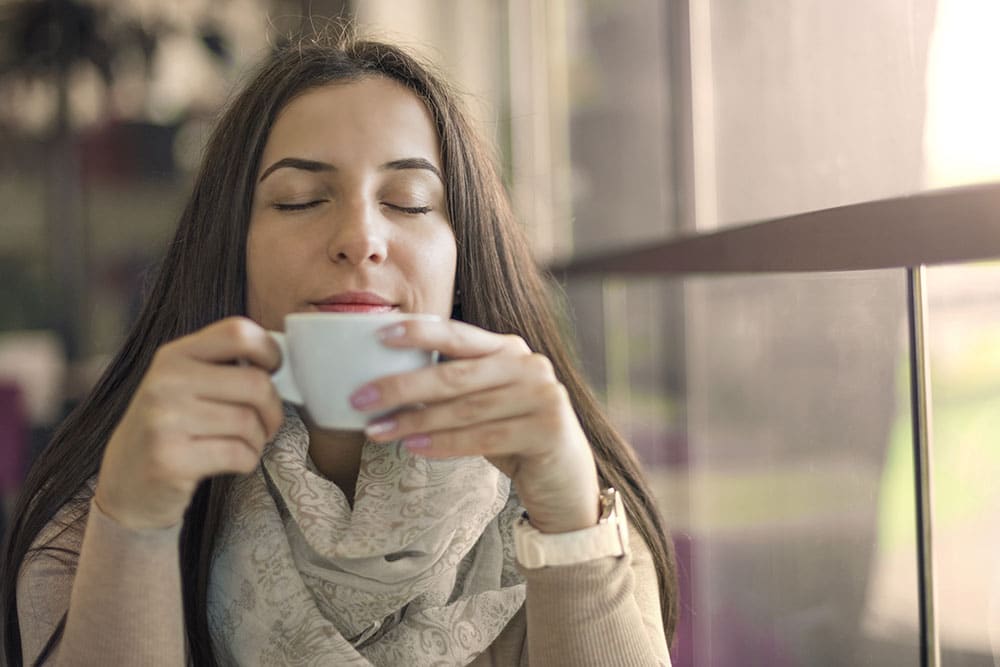Caffeine sometimes gives us a needed pick-me-up. Sugary sodas, energy drinks, and loaded coffee beverages can also contain many calories. There are healthier ways to get the caffeine kick.
Espresso and coffee pack the biggest caffeine punch. If you don’t add sugar or a bunch of cream, it’s isn’t bad for you. A cup of regular coffee has more caffeine than a quarter cup of espresso.
Green tea has less caffeine than a cup of coffee, but some people say the energy boost they get from it is more mellow than what they get from coffee. Green tea also has good stuff in it like flavonoids and antioxidants that can help protect your heart, boost immunity, and maybe burn fat.
Black teas and iced teas also contain caffeine and some of the healthy flavonoids like those in other teas. Watch out for chai tea lattes since they often have a lot of sugar in them. Unsweetened iced tea is a good and refreshing option when the weather heats up.
Matcha is a type of Japanese green tea that is ground into a powder and does not need steeping. It contains caffeine but also L-theanine to calm you down, so some people say it allows them to focus on tasks without jitters. Matcha also contains other vitamins, minerals, and antioxidants.
Guarana is an ingredient you’ll sometimes see on the labels of energy drinks. Guarana seeds have about double the amount of caffeine in them as coffee beans. It is available as a supplement and in a tea form. Watch out for some of the packaged energy drinks that contain guarana. They often contain a lot of sugar and other ingredients. The same goes for other energy drinks. They might wake you up, but with sugar in addition to caffeine.
Yerba Mate is popular drink in South America and is made from the leaves and stems of a tree from the rainforest. It’s a social drink and is prepared in a gourd with a straw and hot water.
Coconut water has a lot of potassium in it which can stimulate your body, but coconut water with espresso in it can pack a caffeine punch.
Dark chocolate has some caffeine in it, but remember, it also has a lot of calories. Be aware of serving sizes when eating chocolate.
As with anything you eat or drink, make sure you’re not getting too much. According to the Mayo Clinic, about 400 milligrams of caffeine per day is the recommended maximum for adults. That’s about four cups of brewed coffee. Too much caffeine can cause many side effects including headaches, insomnia, restlessness, fast heartbeat, and an upset stomach.
Also, some medications can interact with caffeine, so read the labels and check with your doctor.
If you want other ideas about maintaining and improving a healthy lifestyle, the professionals at Health Star Clinic can help. Contact us today.

